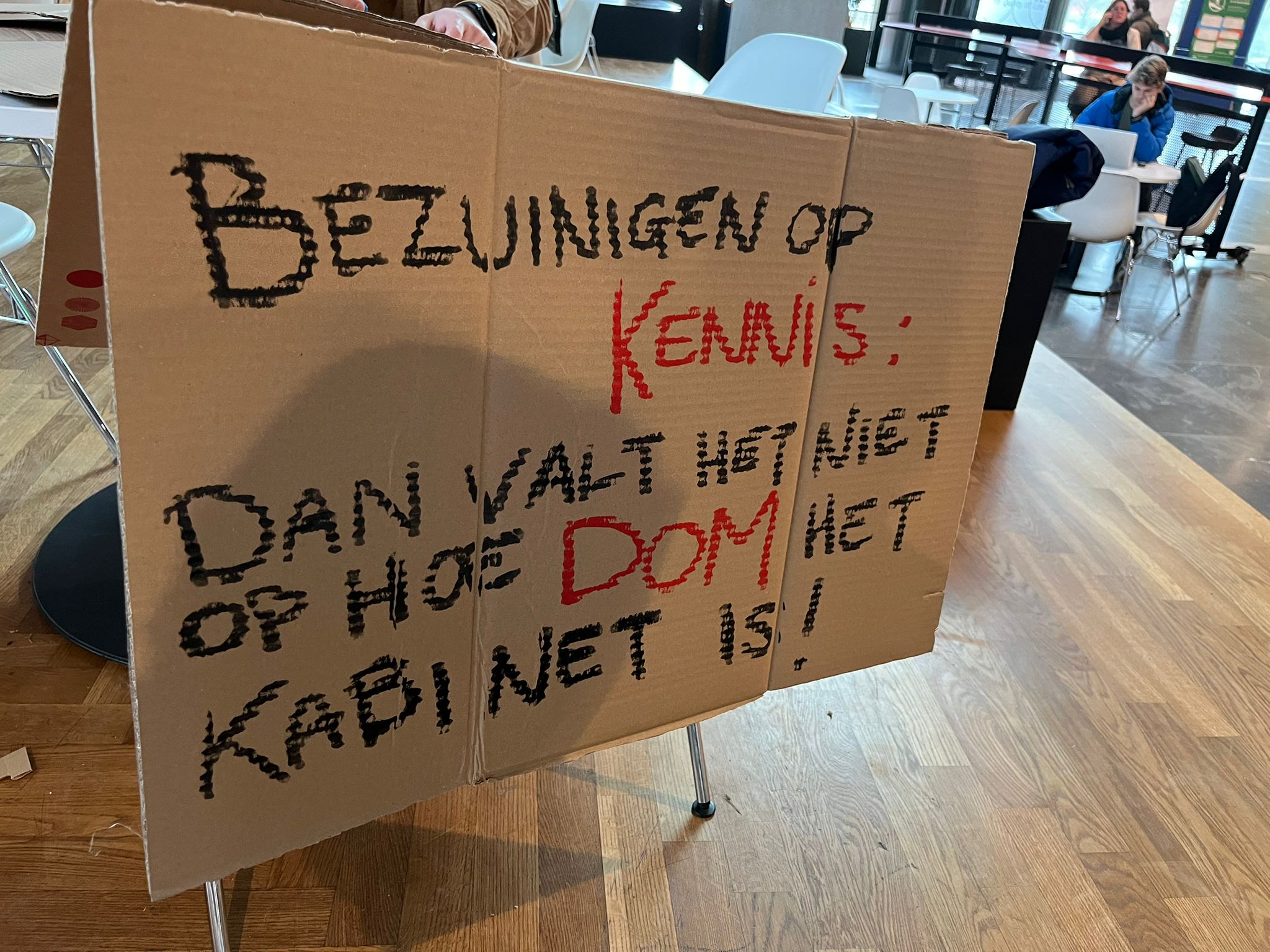Jovan van den Berk, Björn de Kruijf, Gerard Ritsema van Eck and Friso Smedes, all members of the Groningen University Council, submitted an opinion piece on the budget cuts on behalf of the members of the Dutch universities’ codetermination councils. The piece was published in Trouw (before the news that this Thursday’s demonstration in Utrecht has been cancelled).
‘This Thursday, it will be quiet at the Dutch universities. The reason: the unprecedented budget cuts the cabinet has announced for tertiary education, which amount to one billion euros. A sum that is so large it becomes almost abstract. To keep it simple, if this sum were to be cut from the combined total of the government contributions for Wageningen University, TU Eindhoven and Twentre University, these contributions would cease to exist, and with them, these three universities. If the planned budget cuts are implemented, the universities will be empty for a lot longer than just one day.
‘The exodus from the universities is due to the large and widely supported protest that is to take place in Utrecht tomorrow. The Dutch university codetermination councils will also attend. University councils, employee councils and student councils of universities across the Netherlands will make themselves heard. Each year, students and staff are elected to the codetermination councils to discuss issues with the university administrations and to confront them if necessary. A unique right which consolidates democracy within the university.
Cutting
‘These austerity measures will tie our hands. Everything in the coming years will centre on the deep wounds this cabinet has caused with its improvident, pointless measure based on nothing but spite against the alleged ivory tower. The university must bleed! And the codetermination council is permitted to join the debate on where the knife will cut. We refuse, and therefore we will protest loudly.
‘Should we approve cuts in research? There is not a single other country that features in the global rankings of best universities with the same frequency as the Netherlands. And that is not just something on which to pride ourselves. It is also the motor that drives the Netherlands. Research in partnership with the government and private sector solves urgent issues such as social inequality, polarisation and the climate crisis. At the same time, fundamental research at universities lays the foundation for tomorrow’s society and innovations. Without the extensive questionnaires today, there will be no new treatments for depression a decade into the future. Without a nerd in today’s lab, there will be no new ASML two decades from now.
‘Well then, should we approve cuts in our employee numbers? The Labour Inspectorate sounded the alarm earlier this year due to the shockingly high work pressure among university employees, and these cuts will only serve to exhaust them further. Universities are already freezing recruitment. No permanent contract already means getting laid off. And no successors to fill the empty spots.
Back into the pit
‘Perhaps we should approve cuts in education, and thus, students? No. They are finally climbing out of the pit the COVID pandemic tossed them into. Face-to-face classes, together and in a lecture hall, are better for their education and essential to their development and mental health. This cabinet pushes the students right back into the pit: less money for education means fewer hours of contact.
‘That is if you can even afford to study. The long-term study fine makes university education unaffordable for those wanting to contribute to the university community, for example, through the codetermination council and society, for example, as a caregiver.
‘These austerity measures push the codetermination council up against the wall. We refuse. That is why we are going to Utrecht tomorrow. And we call on everyone who has benefitted in any way from Dutch universities to do the same: our students, our alumni, our employees. And even all those long-term students who are now holding positions as minister or state secretary.’

 Protest signs being made in Forum for the demonstration in Utrecht. Photo Zoë Robaey
Protest signs being made in Forum for the demonstration in Utrecht. Photo Zoë Robaey